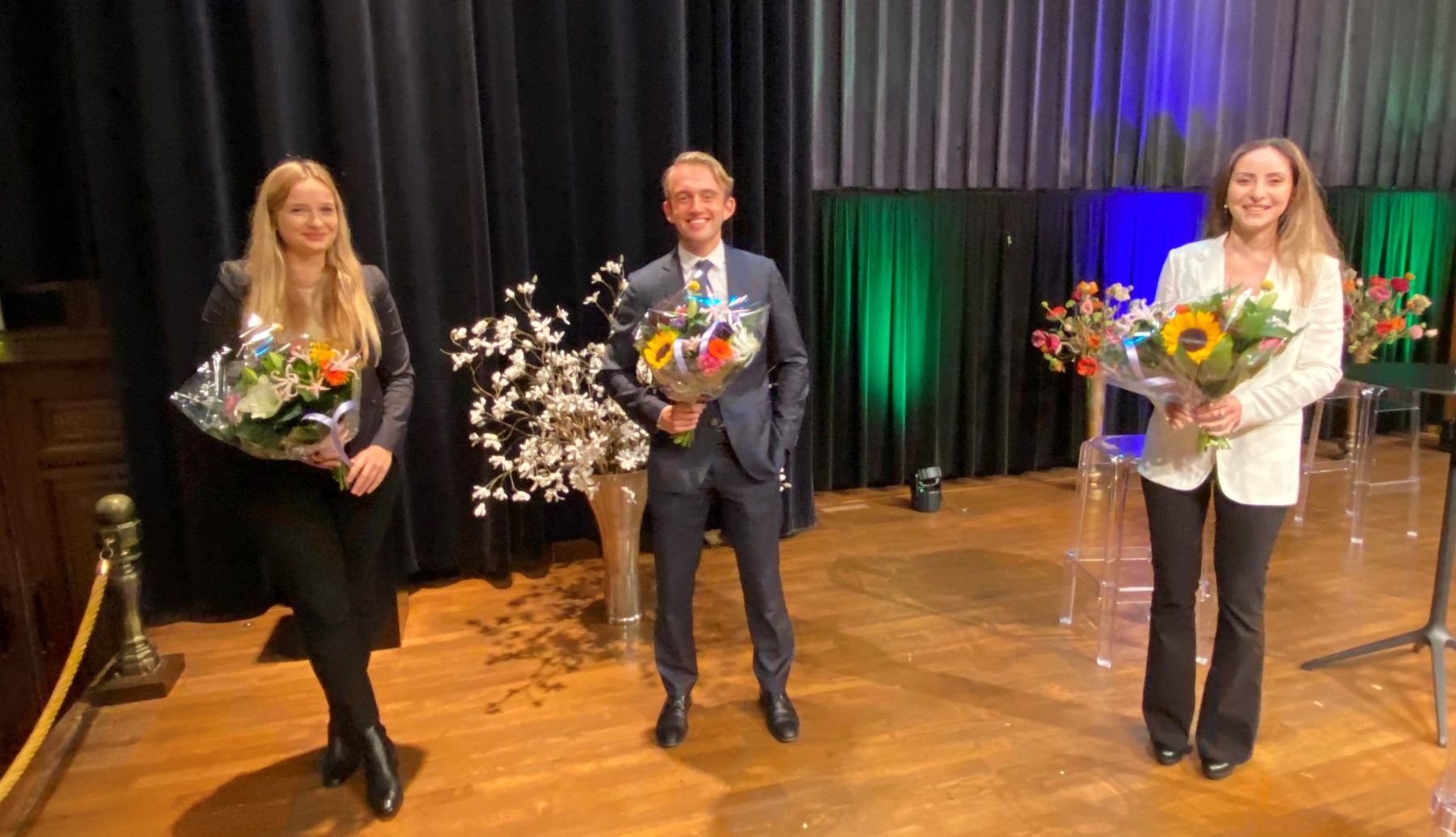
Scriptieprijs
Master studenten van vandaag zijn de mededingingsjuristen en economen van de toekomst. In het kader van haar doelstelling de ontwikkelingen op het gebied van het mededingingsrecht en -beleid in Nederland onder de aandacht te brengen, looft de Stichting Ontwikkelingen Mededingingsrecht drie prijzen uit voor de beste Master scripties op het gebied van het Europese en/of nationale Mededingingsrecht. Inschrijving staat open voor zowel rechten- als economiestudenten.
De eerste prijs bedraagt EUR 1.000, de tweede prijs EUR 750 en de derde prijs EUR 500. De winnende scripties worden bekendgemaakt tijdens het congres en worden naderhand gepubliceerd op de website van de Stichting.
De prijzen worden toegekend aan scripties van uitstekende academische kwaliteit, waarbij originaliteit van onderwerpkeuze en/of methode van onderzoek, de bijdrage aan rechtsontwikkeling en/of rechtspraktijk van belang zijn.
Voorwaarden
Een inzending moet uiterlijk op 4 september 2025 zijn ontvangen. De scriptie is geschreven in het voorafgaande jaar, aan een Nederlandse universiteit en is beoordeeld met een 8 of hoger. De scriptie kan in het Nederlands of Engels zijn geschreven.
Klik hier om het aanmeldformulier te downloaden.
Zie het reglement voor de precieze voorwaarden en de wijze van indiening.
De juryleden voor zijn:
- Herman Speyart (voorzitter), Raadsheer, Gerechtshof Den Haag
- Rasmus Geertsema (lid), Legal Counsel, Directie Juridische Zaken, ACM
- Timo Klein (lid), Senior Consultant, Oxera; Universitair Docent, Universiteit Utrecht
De uitreiking vindt plaats tijdens het jaarlijkse Mededingingscongres te Amsterdam.
Finalisten 2025:
(op volgorde van uitslag)
1. Thomas Paardekooper
Red card for Article 17 RSTP, FIFA sent off the pitch!
2. Clement Mensah
Social Mobility and Competition Law
3. Orkhan Khanlarov
Private Remedies in Public Utility Regulation: Effectiveness of Restructuring and Insolvency Frameworks in Energy Risk Hedging
2024:
1. Veerle Peters
Duplicated enforcement of Article 102 TFEU and the
gatekeeper obligations under the Digital Markets Act in light of ne bis in idem and proportionality
2. Tim Lubbers
Abuse of dominance and sustainability
3. (gedeeld) Mariia Bykova
Between Fair Competition and Market Openness: Assessing How the Foreign Subsidies Regulation Applies to Non-EU State-Owned Enterprises in Light of the Principle of Competitive Neutrality
3. (gedeeld) Claudia Victoria Ionita
A New Three-Body Problem? The EU AI Act, Competition Law, and the Challenge of Modern Bigness
2023:
1. Lois Elshof
Corporate Sustainability Due Diligence and EU Competition Law
2. Alek Kahn
Distinguishing Genuine Sustainability Agreements
from Disguised Cartels under Article 101(3) TFEU
3. Sophie Devogele
Algorithmic Tacit Collusion: a Threat to the Current
EU Competition Law Framework?
2022:
1. Patrick Legros
Cartel and champagne solidarity: peircing the veil on UEFA’s hold over European football
2. Emine Bilsin
Bonding the Two Universes: Data Protection Considerations in the EU Merger Control – Can Merger Remedies Be a Way Out?
3. Niels Wessel
The Netherlands as a Cartel Damages Hub and Private Law Enforcement Paradise?
2021:
1. Merel Livestro
Doorrekenen na doorberekening
2. Sergiu Petrişor
Nurturing business customers for slaughter? Data leeching of non-public business customers’ data performed by dual role online platforms – an abuse of a dominant position?
3. Tatiana Podstolna
New Competition Tool inspired by the CMA: a project worth revisiting
2020:
1. Maurits Michon
The essential facilities doctrine requirement of indispensability and access to vertically integrated gatekeeper online platforms for downstream competitors
2. (gedeeld) Lousine Hovhanisian
Access to Competitively Sensitive Information of the Target
Company: Ancillary to Corporate Transactions or a
Violation of Article 101(1) TFEU?
2. (gedeeld) Mia Monas
‘Legal Sci-Fi’ – Interaction between algorithms, AI systems and competition law in the e-commerce sector
2019:
1. Leah Peeters
Precarious workers and competition law
2. Rasmus Geertsema
The Great Competition Debate
a systematic inquiry
3. Sylwia Kalaska
Equivalence of rights of defence in competition
proceedings before the Commission and the Polish
Competition Authority
2018:
1. Maureen Schrijen
Excessive prices in the
pharmaceutical sector
2. David Makkink
The effects of European competition law on healthcare and national healthcare systems in the EU
3. Astrid Dorigny
The introduction of minimum harmonisation in the leniency application procedure for
stakeholders filing in multiple jurisdictions